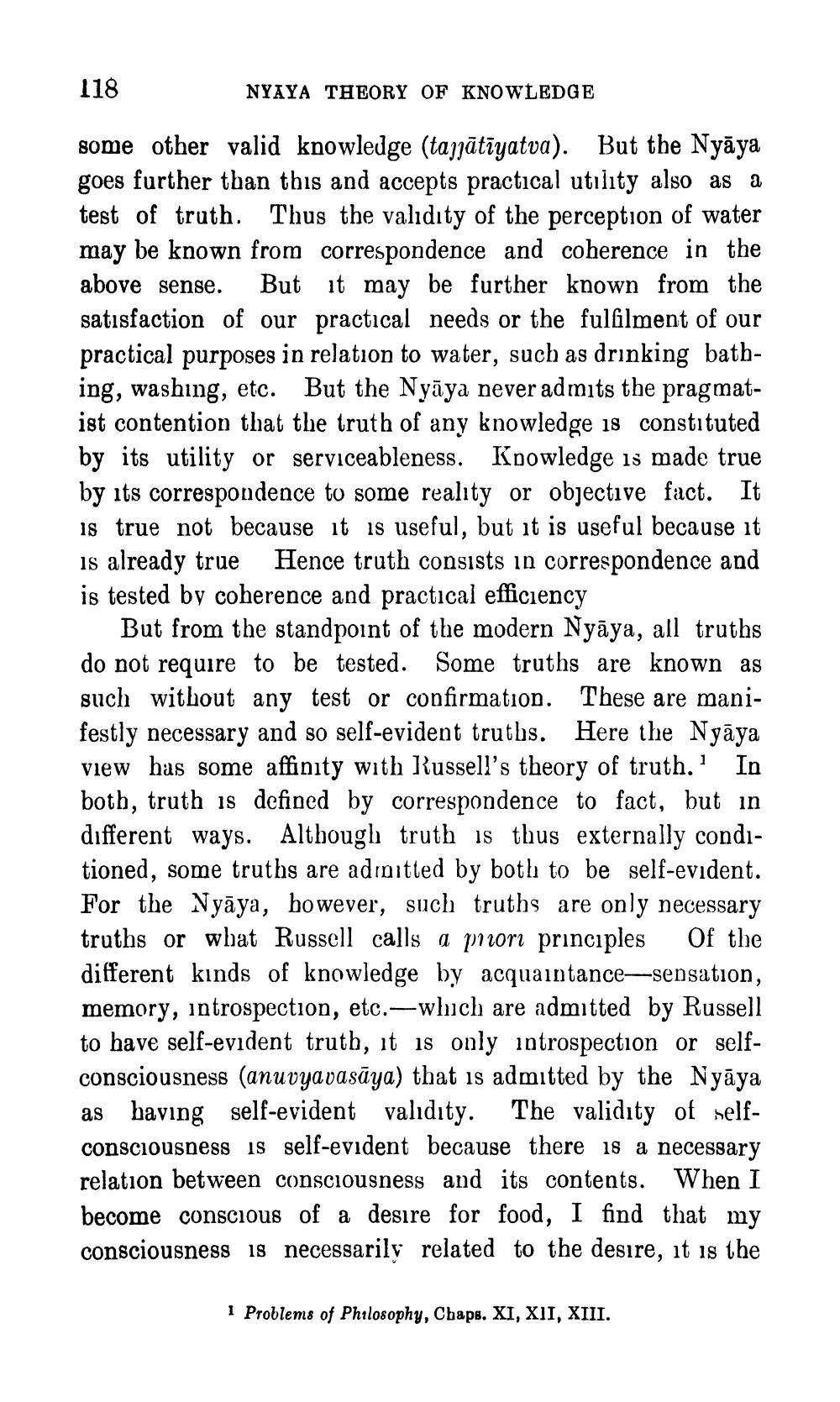________________
118
NYAYA THEORY OF KNOWLEDGE
some other valid knowledge (tajjātīyatva). But the Nyāya goes further than this and accepts practical utility also as a test of truth. Thus the validity of the perception of water may be known from correspondence and coherence in the above sense. But it may be further known from the satisfaction of our practical needs or the fulfilment of our practical purposes in relation to water, such as drinking bathing, washing, etc. But the Nyāya never admits the pragmatist contention that the truth of any knowledge is constituted by its utility or serviceableness. Knowledge is made true by its correspondence to some reality or objective fact. It is true not because it is useful, but it is useful because it is already true Hence truth consists in correspondence and is tested by coherence and practical efficiency
But from the standpoint of the modern Nyāya, all truths do not require to be tested. Some truths are known as such without any test or confirmation. These are manifestly necessary and so self-evident truths. Here the Nyāya view has some affinity with Russell's theory of truth. In both, truth is defined by correspondence to fact, but in different ways. Although truth is thus externally conditioned, some truths are admitted by both to be self-evident. For the Nyāya, however, such truths are only necessary truths or what Russell calls a priori principles of the different kinds of knowledge by acquaintance-sensation, memory, introspection, etc.—which are admitted by Russell to have self-evident truth, it is only introspection or selfconsciousness (anuvyavasāya) that is admitted by the Nyāya as having self-evident valıdıty. The validity of selfconsciousness is self-evident because there is a necessary relation between consciousness and its contents. When I become conscious of a desire for food, I find that my consciousness is necessarily related to the desire, it is the
I Problems of Philosophy, Chaps. XI, XII, XIII.




